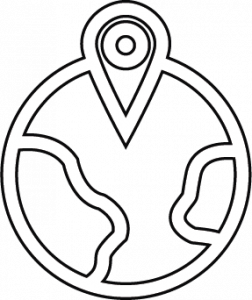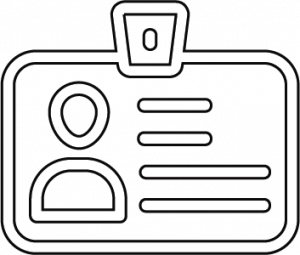NOTE: This article has been translated from the original Spanish, which can be found here. Therefore, embedded links/sources are predominantly in Spanish. English links have been included where possible.
For years, technological advancements and artificial intelligence (AI) have been part of companies’ daily lives, providing increasingly effective marketing tools to communicate the right message to the right user at the right time.
Evidence of this is that nearly 12% of Spanish companies with more than ten employees use AI in one way or another to improve their business. AI is not only one of the most discussed and sought-after topics in 2023, but marketing professionals have found in it a useful tool to serve their customers in a more personal and consistent way. And they don’t do it alone. The support of their partners and expert agencies is essential to efficiently use AI.
This collaboration for the design and execution of innovative strategies is the focus of the Google Marketing Partners Awards (GMPA), which aim to recognize the work of the best projects in technology in the industry using Google’s tools. This year’s GMPA involved the collaboration of Boston Consulting Group (BCG) as a strategic consultant for the analysis of the cases presented.
The gold winners were Making Science with its ad-machina solution in the Industry Solution category, Riu Hotels&Resorts along with Making Science in the Digital Transformation category, and T2ó with its success case for PortAventura World in the Media Activation category. All of them serve as inspiration for the efficient use of AI to boost marketing.
According to Javier Perez Moiño, managing director and partner of BCG Spain: “The marketing strategies of Spanish brands are increasingly sophisticated in terms of the use of technology and AI, which will continue to be the protagonist in 2023 and the coming years. The success of these strategies lies in focusing on the collaboration between the brand and partner and using AI at the service of the expert.”
1. Conveying the right message:
Making Science’s AI-based ad personalization solution
The growing demand for personalized travel experiences continues to rise among Spanish tourists. This presents a challenge for companies in the sector, which have extensive service feeds. Personalizing messages and experiences requires significant time and resources, in addition to constant updates due to ongoing changes in variables such as price, offers, or availability.
To address this challenge, tech consultancy Making Science has developed a solution for the sector based on AI for the automation of ads with key messages. This technology, called ad-machina, is a natural language generation (NLG) solution, which transforms a travel sector company’s product feed data into advanced Google Ads and Search Ads 360 campaigns.
The tool uses AI to create real-time, fully personalized ads based on user search criteria and cognitive biases. In addition, it adapts messages to current services, prices, and offers at the time of the search. These ads tailored to each search offer an improvement in the shopping experience for users, contributing to an increase in conversion rates for the company.
As explained by Eduardo Sarciat, managing director of ad-machina at Making Science: “AI technology allows us to transform data into advanced Google Ads campaigns, creating hundreds of thousands of messages in different languages to personalize the user experience.”
Making Science has applied its ad-machina technology to the Google Search campaigns of several of its tourism sector clients in Spain. An example is the hotel chain Iberostar, which thanks to the creation of real-time update messages for its offers managed to multiply its ROAS by four.
Iberostar add TWG (2) Before the application of ad-machina, Iberostar had three ads for each of its hotels. Applying the ad-machina AI solution allowed it to have an ad for each hotel, with over 100 personalization possibilities for each one.
2. Reaching the right user
Riu’s strategy to attract high-value customers with the activation of their own data through AI
30% of Spaniards were forced to cancel their vacations due to high inflation last year. This 2023, hotels also suffered due to the calling of general elections in the middle of July. The high cancellation rate is a trend that forces companies in the sector not to focus solely on achieving a large volume of reservations, but to do so while achieving the highest possible profitability.
The hotel chain Riu wanted to improve its customer acquisition campaigns, directing them towards higher value and profitability users, without losing conversion volume to reservations.
Together with their partner Making Science, they proposed a transformation of their digital strategy, which would allow them to into business data. That is, order and activate data such as reservation cancellations, user loyalty to the brand, or customer spending at the hotel, to direct their campaigns towards the users who presumably would provide the most value to Riu.
Riu carried out this transformation of its digital strategy in three fundamental steps:
Own data structuring: The first measure was to structure their own data within Google Cloud, to create a Customer Data Platform (CDP) architecture, adapted to their needs and structure.
As Juan Campins, VP of digital channel at Riu Hotels & Resorts explains: “What we were looking for was to collect all customer experience in a single environment, a secure, scalable, and connected environment, that would allow us to orchestrate our audiences in real time in both our own and paid channels.”
Team restructuring: The various IT, data, and marketing teams at Riu previously had different objectives and worked independently. They set joint objectives with the exploitation of their first-party data as the basis for the transformation of their strategy.
In the words of Álvaro Verdeja, global director of data and cloud at Making Science, “each team that worked with its own data contributed their data sources: digital marketing platforms, contact center platforms, the reservation engine, etc.”
The teams moved on to have defined functions based on what part of the process of exploiting that own data each one performed. This established a way for everyone to collaborate to achieve business objectives. “From there, we were able to analyze user profiles to offer them a unique experience both prior to arrival on the website, on the website itself, and afterward,” explains Verdeja.
Activation of proprietary data thanks to AI: Together with their partner Making Science, they activated different proprietary technological solutions based on AI models, which the partner groups under the name of Gauss. In this way, they were able to activate their own data in an orderly and privacy-respecting manner, with the goal of achieving increased profitability while maintaining the volume of leads.
With Gauss’s AI solutions, they were able to predict those users who are more likely to cancel or finalize the reservation, to boost their Value Based Bidding strategy to bid towards those with a higher probability of converting.
This new business structure based on exploiting their own data allowed Riu to increase their bookings by 99%, and double their ROAS (Return On Advertising Spend).
3. The right time
T2ó’s case for PortAventura World on seasonality and sales periods
One of the main challenges of the tourism sector in Spain is to break with the marked seasonality of demand that exists. However, pinpointing the moments when users are willing to book a trip or a getaway outside of holiday peaks is quite a challenge.
That is what PortAventura World, a theme park located in Tarragona, faced when it wanted to advance its opening to February, introducing the Carnival period to boost one of its visitor low points.
With this new season, their major goal was to increase the volume of visitors and new customers by exploring new audiences.
Firstly, they used the AI solution Vimana from their partner T2ó to perform an initial analysis that allowed them to identify active demand for this new period. This tool applies AI and statistical calculations to analyze proprietary data and market information. “Based on the analysis of their own data, we designed the architecture of the audiences to work with, to propose an optimal media mix,” explains Alfonso del Barrio, managing director of T2ó Spain. “In this mix, the channels and functionalities of Google based on AI were essential to achieve the objectives,” he adds.
The success of the strategy was seen in the increase of more than 30% of new users and the 68% increase in total transactions compared to the previous year. As explained by Jordi Ortega, head of eCommerce at PortAventura World: “The result of applying a full funnel strategy hand in hand with the activation of like-minded audiences, together with the reach provided by campaigns executed through Google Marketing Platform, has allowed us to achieve performance metrics and an overall return on investment far above our initial expectations.”
“These cases show that the most successful marketing strategies focus on brand collaboration with their partners, driving business results with the tools that artificial intelligence offers,” explains Javier Pérez Moiño from BCG. “The most sophisticated marketing strategies achieve sustainable business results over time, giving the brand a competitive advantage,” he adds.






 Cookie configuration
Cookie configuration